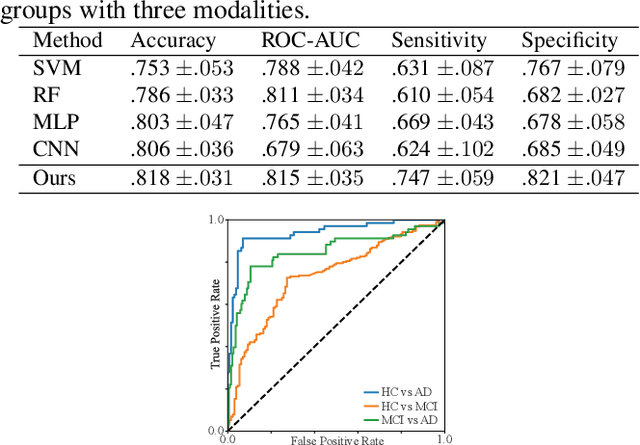Houliang Zhou
Interpretable Graph Convolutional Network of Multi-Modality Brain Imaging for Alzheimer's Disease Diagnosis
Apr 27, 2022



Abstract:Identification of brain regions related to the specific neurological disorders are of great importance for biomarker and diagnostic studies. In this paper, we propose an interpretable Graph Convolutional Network (GCN) framework for the identification and classification of Alzheimer's disease (AD) using multi-modality brain imaging data. Specifically, we extended the Gradient Class Activation Mapping (Grad-CAM) technique to quantify the most discriminative features identified by GCN from brain connectivity patterns. We then utilized them to find signature regions of interest (ROIs) by detecting the difference of features between regions in healthy control (HC), mild cognitive impairment (MCI), and AD groups. We conducted the experiments on the ADNI database with imaging data from three modalities, including VBM-MRI, FDG-PET, and AV45-PET, and showed that the ROI features learned by our method were effective for enhancing the performances of both clinical score prediction and disease status identification. It also successfully identified biomarkers associated with AD and MCI.
 Add to Chrome
Add to Chrome Add to Firefox
Add to Firefox Add to Edge
Add to Edge